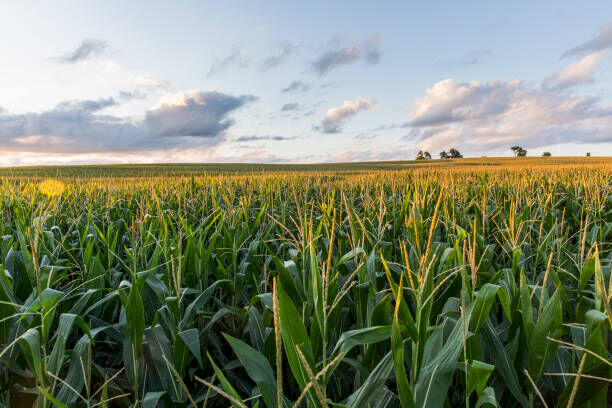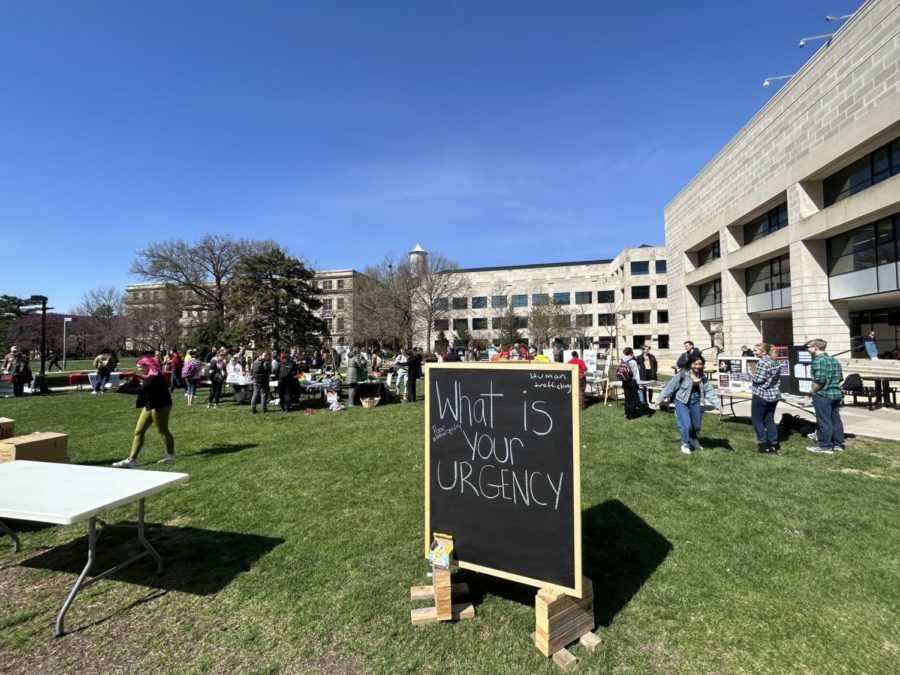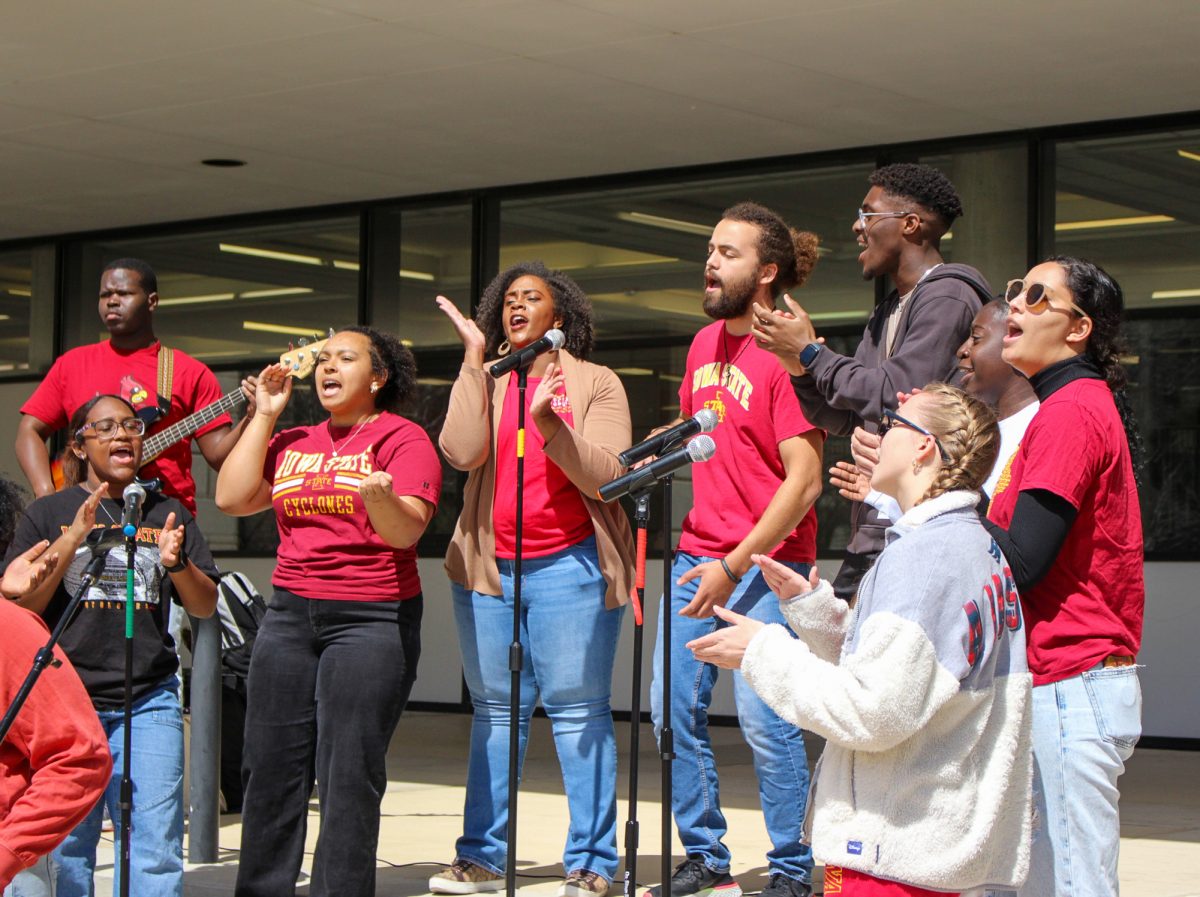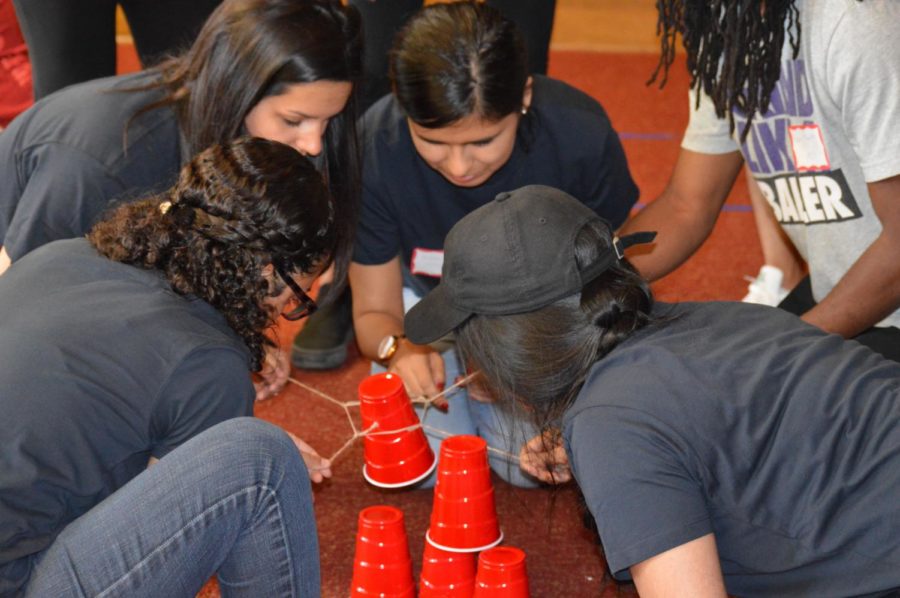Content Warning: The following article contains mentions of mental health and suicide.
Editor’s Note: One of the sources interviewed in this piece is a member of the reporter’s family.
Jon Winkelpleck, a fourth-generation family farm operator, has lost three college classmates to death by suicide. They were also farmers. According to a study done by the University of Iowa, farmers and ranchers are 3.5 times more likely to take their lives compared to the general population. There are many imposing pressures in the life of the independent farmer. However, Winkelpleck said one stressor rises above the rest.
“The ongoing legacy of having a family farm and the possibility of failing,” Winkelpleck said.
He runs an operation with about 2,500 acres and 600 head of cattle alongside his father and brother. Farming for 36 years, Winkelpleck is no stranger to the strain the profession can put on someone. Factors such as weather, grain and livestock prices and policy issues typically remain out of the farmer’s control. Despite this, they are forced to find ways to adapt and persevere.
“The cattle need to be fed whether there’s a blizzard or not, you don’t get to call in sick,” Winkelpleck said. “The crop must go in in a timely manner and come out in a timely manner.”
Many family farm operations are rurally located, meaning lower mental healthcare access. According to the Rural Health Association, staffing shortages, travel distance, cost and stigma surrounding getting help all play into rural farmers lacking the help they need. Winkelpleck said he has relied heavily on his faith to keep him going.
“God gives us the strength for one day and one day only,” Winkelpleck said.
Skyler Rinker, assistant teaching professor for the Ag 450 capstone course at Iowa State, makes sure to touch on mental health with his students during their time in the class.
Rinker said there is an aspect of farming that requires a sense of stubbornness from the farmer to be successful.
“Individuals that are running their own business and are farming, they’re proud people,” Rinker said.
Many agriculturally rooted people see reaching out for help as a sign of weakness, especially when previous generations have been taught to sweep their difficult emotions under the rug and carry on. Rinker hopes that the content on mental health he shares with his students causes them to reflect.
“We expose them to it,” Rinker said. “We share information with them, and hopefully, they sit back and think a little bit.”
Emma Bartling describes how she grew up as “anything you can think of that’s considered ‘Midwest grown.’”
Bartling is a junior majoring in agricultural and rural policy studies at Iowa State and president of the Ag Policy Club. Her family raises cattle, pigs and row crops. She plans to attend law school to help families move their farms from one generation to the next.
Bartling also believes that policy has the power to integrate more mental health practices into the profession.
“I’m very hopeful for what policy can do within agriculture, especially with promoting awareness for this issue,” Bartling said.
The average age of farmers in the U.S. is 57-years-old, making it the oldest median workforce age. Bartling has hope that the topic of mental health in younger generations is less stigmatized than in previous decades and believes social media is a powerful factor in facilitating this.
She gave the example of “Cole the Cornstar,” a fourth-generation farmer based in central Iowa with over 550,000 YouTube subscribers. He talks openly about the struggles that come with farming.
“I feel as though this generation is much more willing to talk about things like that,” Bartling said. “So, just moving forward, I hope it gets even better.”
While Bartling believes social media connects people positively to the industry, she also feels that farmers are facing misconceptions from the “outside world.” She said that many people believe farmers treat their livestock poorly or inhumanely, but this is not the case.
“A farmer is not going to abuse something that is in the end going to make him money; that’s going to make him less profitable,” Bartling said.
Tori Hlas, a senior majoring in agricultural studies, has grown up knowing the extra responsibilities of the farming industry. She was born and raised in Belle Plaine, Iowa, a town with a population of about 2,300, raising sheep and being involved in 4-H and Future Farmers of America (FFA). She is also the president of the Farm Operations Club at Iowa State.
“Farming is one of those things where it’s not just an occupation, it’s your whole body and soul,” Hlas said.
Hlas said her experience growing up on a farm required her to grow up quicker than most kids. The responsibilities engrained an ethic of hard work and dedication at an early age.
“How many 13, 14 and 15-year-old high school kids are staying up until midnight and 2 a.m. to go to the barn and check on how the sheep are doing?” Hlas said.
Among the responsibilities farming requires, comparison can be a leading factor in the detriment of an operator’s mental health. Looking over at the other farmer’s equipment and crop quality is common.
“People can get really depressed if they have an old tractor that’s rusty or whatever, and their neighbor has a brand new, 2023 shiny one that just rolled off the line,” Hlas said.
Hlas said there is a certain “brand” and “reputation” that comes with farming and being a select population feeding millions of Americans. Despite this, she said it is important not to let this pride hinder keeping realistic expectations and goals.
“It’s just kind of knowing what’s possible and what’s not,” Hlas said. “Some people want to have their sights set on the biggest and best, but you have to know what’s attainable.”
“Tori Time ” is something that Hlas created for herself to keep her spirits up when she is constantly on the go. She takes at least 20 minutes to reflect on the day ahead of her without the distractions of a TV or a phone.
“If you don’t delegate that time, that’s when I feel like people really break down,” Hlas said.
Like Hlas, Bartling thinks that farming requires a sense of pride in one’s work. The demands of running an operation require work that leads to a greater sense of accomplishment.
“You have to have some pride in what you do, especially within farming,” Bartling said. “You tend to so many people, and everybody uses our products, from brushing your teeth in the morning to putting gas in your car.”
She also thinks that there are pros and cons to comparing your operation to another. She said from one perspective it creates healthy competition that can motivate someone to achieve greater accomplishments. On the other hand, she said that too much comparison is harmful.
“I think comparison and competition within the industry is what’s gotten us this far,” Bartling said. “But I don’t necessarily think that we should continue capitalizing on it, especially when comparison is something that could be so detrimental to mental health.”
Asking for help is often difficult, especially within a profession marked by values of hard work, dedication and grit. However, Bartling encouraged people in the agriculture industry not to be blinded by the pride resulting from this hard work.
“Being prideful in what you do and that you’re feeding Americans is something great, but you need to be able to step back and realize that you need help for yourself as well,” Bartling said.
If you are having thoughts of suicide, call the National Suicide Prevention Lifeline at 988. You can find a list of additional resources at SpeakingofSuicide.com/resources.



















